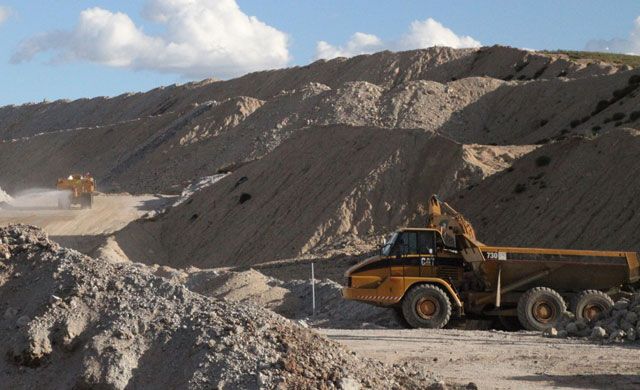I posted this newsletter in June 2016 before the Brexit vote – much of it’s logic is still being played out and so I thought you might want to read it again (and new subscribers can have a look).

People are demanding to be presented with “facts” regarding the consequences of Brexit. In particular, they want economic and financial facts. These will not be presented by economists, politicians or the press. Indeed, they are impossible to present.
This is because the economic/financial outcomes depend primarily on the actions of people; and those actions depend on their psychology.
This psychology is difficult to pin down with any sense of assurance ahead of the event. However I’m going to be reckless; I’m going to have a stab at following the logic-path stemming from what we do know. I hope to trace a possible outcome for businesses and for investors.
Alternative perspectives will be welcomed – please add comments – I know passions are aflame on this issue, so please keep it polite.
But first, three quotations which will be useful reminders/mantras in the turbulent days ahead:
“Look for opportunity amid the flux” (anonymous)
Warren Buffett, Letter to Shareholders 1994:
“We will continue to ignore political and economic forecasts, which are an expensive distraction for many investors and businessmen……none [of the major macro-economic events] made the slightest dent in Ben Graham’s investment principles. Nor did they render unsound the negotiated purchases of fine businesses at sensible prices……We have usually made our best purchases when apprehensions about some macro event were at a peak. Fear is the foe of the faddist, but the friend of the fundamentalist. A different set of major shocks is sure to occur in the next 30 years. We will neither try to predict these nor profit from them. If we can identify businesses similar to those we have purchased in the past, external surprises will have little effect on our long-term results.”
Ben Graham, from the Intelligent Investor:
Mr Market is very obliging indeed…..[he] lets his fears run away with him, and the value he proposes seems to you little short of silly.”
As final preparation for what is to come: I remember when I was a shareholder in Berkshire Hathaway, Warren was unable to find much in which to invest in the few years prior to 2008. He was heavily criticised for holding so much cash. Then, when everyone else was in a panic in the post-crisis period, he stepped up his buying significantly, and bought some great bargains.
A punt at what might be to come
Start with the psychology of the Continental European political classes.
Britain has voted to leave – they are shocked.
They are committed to the European project – they will be desperate to keep the show on the road.
They do not want another country to follow the UK to the exit.
So, they have a strong incentive to send a message that leaving will be painful. They know it will not be painful if they easily and rapidly agree a free trade agreement with the UK.
And remember Switzerland. Two years ago they wanted to restrict free movement of other Europeans to their country (the Swiss population voted against “mass immigration”). The rest of Europe said no – if you want free trade you have to accept people as well as a host of other rules that the EU will impose.
They faced a choice. They decided to back down, so that they could avoid the economic crisis flowing from blocked exports. Switzerland’s government is now trying to negotiate some limits to immigration to comply with the referendum result, but the EU is adamant.
Similarly Norway wants to trade with the EU countries freely. Yes, they can. But only if they accept free movement of EU people and follow rules made in Brussels (a “fax democracy”, as they await faxed dictats from Brussels, according to Jan Stoltenburg, former PM). And they have to contribute to the EU budget.
Both Switzerland and Norway have much higher levels of immigration per 1,000 of their population than the UK, thus they have chosen to swallow a much more bitter immigration pill than the UK would – and still they do it. Food for thought?
(The WTO model of trade negotiation or the Canadian model bring so much disruptive delayed resolution that they would aggravate the feelings of uncertainty even more than the Swiss or Norwegian models).
Ah, but the UK is bigger, stronger, in a more powerful negotiating position
Yes it is, but consider this (I speculate on the psychology): Of our exports 44.6% flow to the 444m people of Continental Europe. Of all Germany exports 7.46% come to the UK.
So yes, VW, Mercedes, etc., will not want trade barriers, and therefore will lobby their politicians for a free trade agreement with the UK.
But free trade agreements require the unanimous agreement of all the EU countries. Many of those export a tiny amount to the UK.
Many are very keen on preserving the EU as an entity, and preserving the euro as their currency. They fear the chaos of multiple EU exits.
They don’t care that much if the UK threatens to block the 1% or so of their exports that are sent to the UK. Far better to make an example of the UK, make exit painful.
Free trade is not the same as single market
Free trade is limited in scope, it includes certain industries only, making them free or relatively free of tariffs and other export barriers, but other sectors are not so blesssed.
In particular, the EU seems to like excluding many services from free trade, such as financial services. And agreement on these things is usually only reached after years of negotiation.
Free trade without free movement of people?
The EU consists of over 508 million people. The UK has 64 million. The opinion-forming classes like free movement of people, goods, services and capital, they cherish it (as do quite a lot of Brits on the Costa Del Sol or working in Berlin).
My guess is that they will insist on a red line: free movement of people is the quid pro quo if you want free trade.
Drawn out negotiations
Withdrawal from the EU will not take place overnight. According to the rule book we have two years to make the preparations. Lots of late night negotiating then, to try to get access to the biggest trading block in the world post-2018.
While these confrontational encounters are going on, your archetypal Japanese manufacturer is contemplating where to set up a new car plant. Hmm, shall we go for the UK with 64m people, with a vague possibility of access to the rest of Europe in 10-years time, with or without tariffs, or shall we go for somewhere on the Continent with 444 million people and established trade agreements worldwide so we can export from there? I think we might by-pass the UK, nice though the business policies are.
(BTW the UK will have to negotiate from scratch its trade agreements with non-EU countries as it is currently lumped-in with the EU ones).
And then there the UK producers, such as Rolls Royce. Should it invest in a new plant in Derby and face the concomitant fear of the negotiation with Brussels going wrong? Or should it invest somewhere that already has settled trade matters such as Singapore or even France? A shareholder-maximising CEO I might be obliged to say no to the Derby plant.
Then there are the domestically focused industries. None is more domestically focused than the house builders. Some have already put investments on hold. They fear a general loss of confidence in the economy. Are American companies going to set up here? Will the City be seriously challenged by Frankfurt and Paris as financial services passporting rights are removed? How many jobs will be lost in services? Will there be an exodus of talent across the Channel? The general feeling will not be a positive one.
The macro economic forecasts
The ones that you have read are nothing more than wild guesses by macro-economist who love to quantify. They are guesses because the economists do not know how people will react to the shock and to the uncertainty.
The decision-formers and negotiators in Euro
………………To read more subscribe to my premium newsletter Deep Value Shares – click here http://newsletters.advfn.com/deepvalueshares/subscribe-1

















